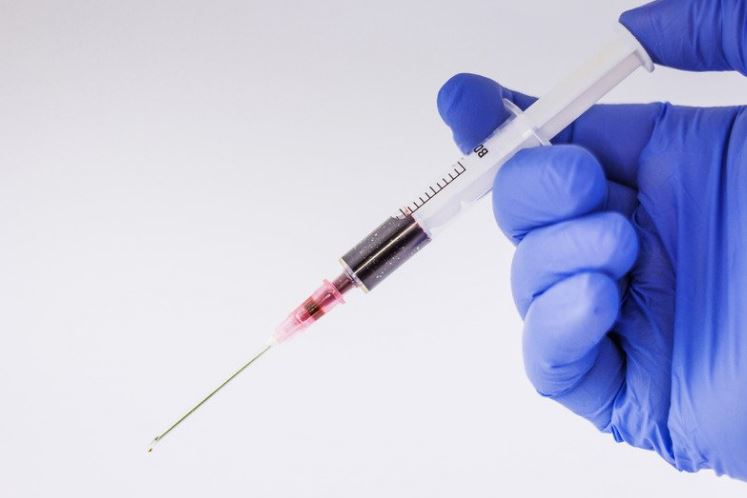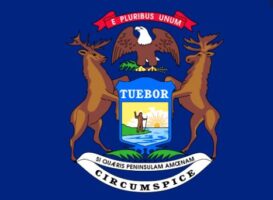
AG Nessel Leads Coalition Asking Congress to Regulate Prices of Medical Supplies

CORRECTION: An earlier version of this release contained the word “freeze” instead of “regulate,” which more accurately reflects the intent of the letter sent to Congress. Media Contact: Ryan Jarvi FOR IMMEDIATE RELEASE: Michigan AG Nessel Leads Coalition in Asking Congress to Regulate Prices of Medical Supplies, Equipment During COVID-19 PandemicLANSING – Michigan Attorney General Dana Nessel is leading a coalition of attorneys general from across the country in sending a letter today to Congress asking lawmakers to temporarily fix the prices of medical equipment during the coronavirus disease 2019 (COVID-19) pandemic. Michigan has nearly 33,000 confirmed cases of COVID-19, with 2,700 deaths. The spread of this contagious virus has resulted in widespread shortages of ventilators and personal protective equipment (PPE) like face masks, gloves and gowns for not only hospitals and health care providers, but also federal, state, local and tribal governments. Moreover, the shortages in these necessary resources have resulted in competitive bidding wars among those entities, both private and public, the latter of which ultimately amounts to taxpayer-funded subsidies to the corporate supplier of the equipment. The coalition is asking Congress to regulate prices of medical supplies and equipment to fight against artificial inflation and to avoid those with the supplies from profiteering by playing government agencies and hospitals against each other, while the spread of COVID-19 continues and more Americans die. “COVID-19 has stretched thin the health care industry’s supply chain and it is threatening to drain public coffers as governments at all levels are pitted against each other in bidding wars, fighting to procure the equipment their residents and employees desperately need,” Nessel said. “This country needs a united effort to keep the health care industry from unjustly profiting while the American people suffer. In normal times, supply and demand drive prices. But in a public health emergency when lives are at stake, government intervention is sometimes needed, and I urge Congress to act.” Determining how to design or implement price-control measures on medical supplies and equipment is left to Congress, but the coalition insists action is needed now. States have exercised their authorities to control prices in public utilities, like electricity and natural gas. But federal oversight of the health care industry during the current public national emergency would be far more effective than an attempt by states to exert authority, as any corporate supplier could simply choose not to conduct business in that state – further worsening the emergency situation for that part of the country. Congress recently enacted a stimulus package designed to help Americans cope with the effects of business closures during the pandemic, but federal efforts must include a focus on the health care industry’s supply chain. Congress is the appropriate authority to fix prices during national emergencies and has exerted that authority in the past. “Congress should intervene and enact legislation—similar to the Emergency Price Control Act of 1942 enacted ruing World War II—fixing the prices of medical supplies and equipment that hospitals and emergency treatment centers of this country so desperately need in fighting the war against this ‘invisible enemy,’” the coalition’s letter states. Joining Nessel in sending this letter are the attorneys general from Connecticut, Delaware, Iowa, Maine, Massachusetts, |




 In-person Earth Day events may be canceled, but we still can get into the spirit of the annual environmental observance – marking its 50th anniversary this year – by taking action and celebrating at home.
In-person Earth Day events may be canceled, but we still can get into the spirit of the annual environmental observance – marking its 50th anniversary this year – by taking action and celebrating at home.
 Michigan’s 20 million acres of forests and abundant urban trees do a lot for us: trees clean our air and water, make homes for wildlife, create forests for us to hike and bike through, absorb carbon, keep us cool, supply renewable materials for the things we need and provide natural beauty.
Michigan’s 20 million acres of forests and abundant urban trees do a lot for us: trees clean our air and water, make homes for wildlife, create forests for us to hike and bike through, absorb carbon, keep us cool, supply renewable materials for the things we need and provide natural beauty.
 Jump-start a connection to nature this Arbor Day by planning to plant a native tree. While some nurseries are closed due to COVID-19 mitigation, you can plan now for the trees you want to plant when nurseries reopen. Check out online tree-buying options like the
Jump-start a connection to nature this Arbor Day by planning to plant a native tree. While some nurseries are closed due to COVID-19 mitigation, you can plan now for the trees you want to plant when nurseries reopen. Check out online tree-buying options like the  Arbor Day is the perfect time start thinking about the benefits and natural beauty of trees and plants. Before you grab a shovel, make sure to pick the perfect spot for a tree to grow.
Arbor Day is the perfect time start thinking about the benefits and natural beauty of trees and plants. Before you grab a shovel, make sure to pick the perfect spot for a tree to grow.
 Monarch butterflies, bees and other insects – despite their small size – play a very large role in humans’ lives as they travel to flowering plants, drinking nectar and transporting pollen. Pollinators like butterflies and bees are responsible for approximately one-third of the world’s food source.
Monarch butterflies, bees and other insects – despite their small size – play a very large role in humans’ lives as they travel to flowering plants, drinking nectar and transporting pollen. Pollinators like butterflies and bees are responsible for approximately one-third of the world’s food source.



